Analysis of Interview with Elderly Individual: Psychology Report
VerifiedAdded on 2022/08/24
|5
|885
|26
Report
AI Summary
This report presents an analysis of an interview conducted with a 70-year-old man, focusing on the changes experienced during late adulthood. The interview explores various aspects of aging, including dietary habits, digestive abilities, and the onset of physical ailments like knee pains. The report connects the interview responses to psychological theories, particularly Erikson's stage of 'Ego Integrity versus Despair,' and highlights the importance of supportive familial relationships and positive self-perception in coping with emotional challenges. Furthermore, the report discusses the physiological changes associated with aging, such as musculoskeletal issues and decreased digestive function, as reflected in the interview responses. The conclusion emphasizes the significance of lifestyle modifications and positive reflective practices in helping elderly individuals navigate the multifaceted adverse changes associated with aging.
1 out of 5
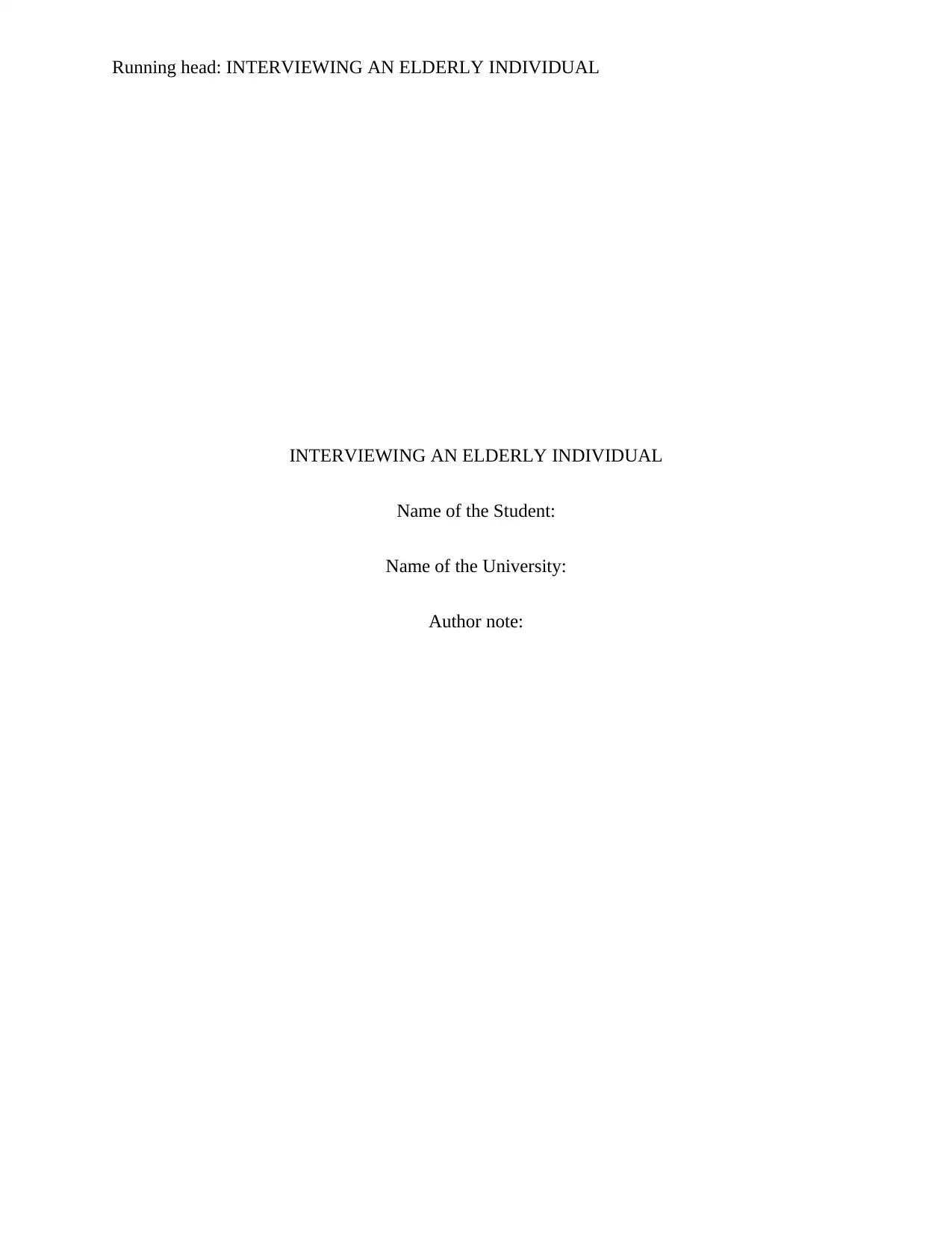
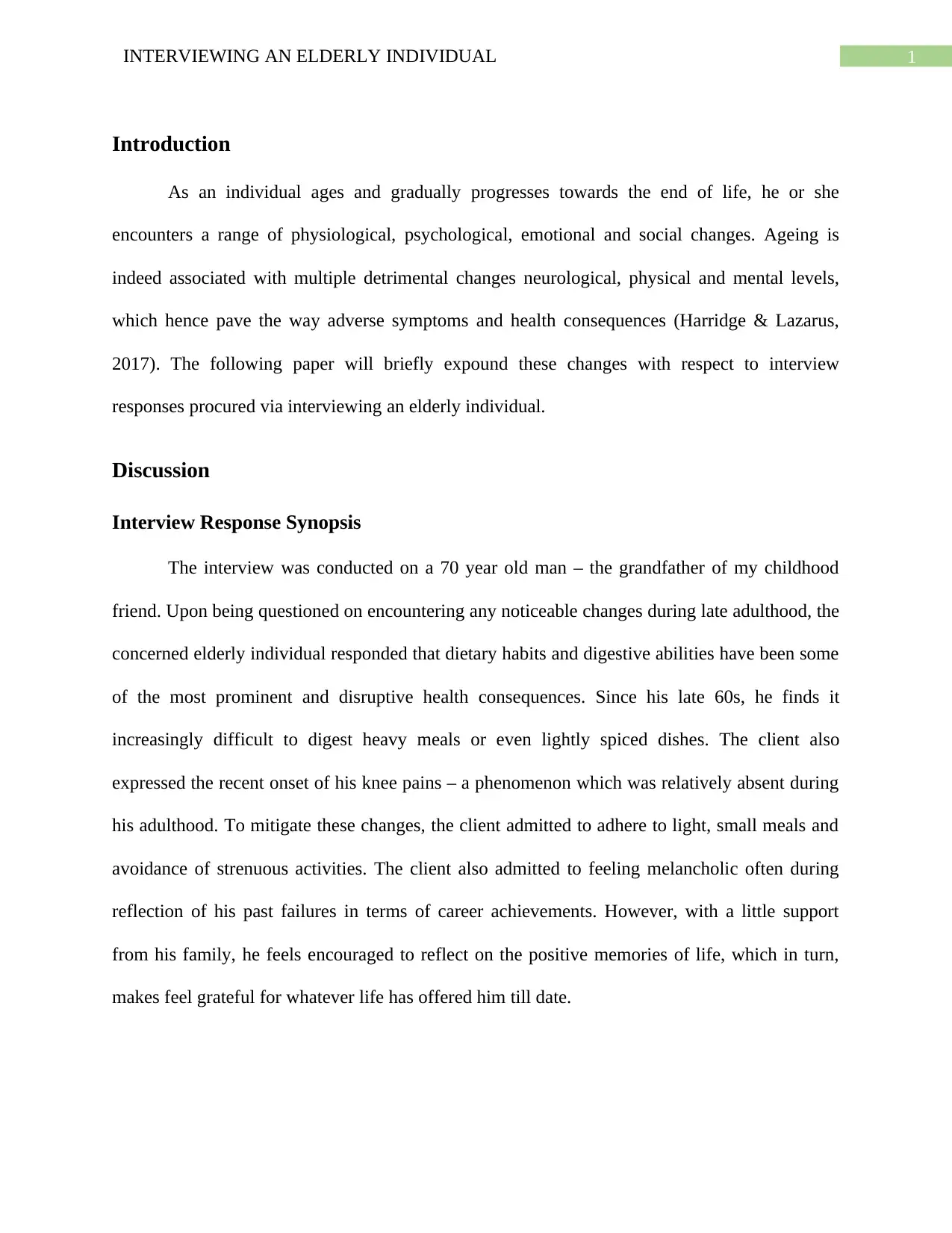
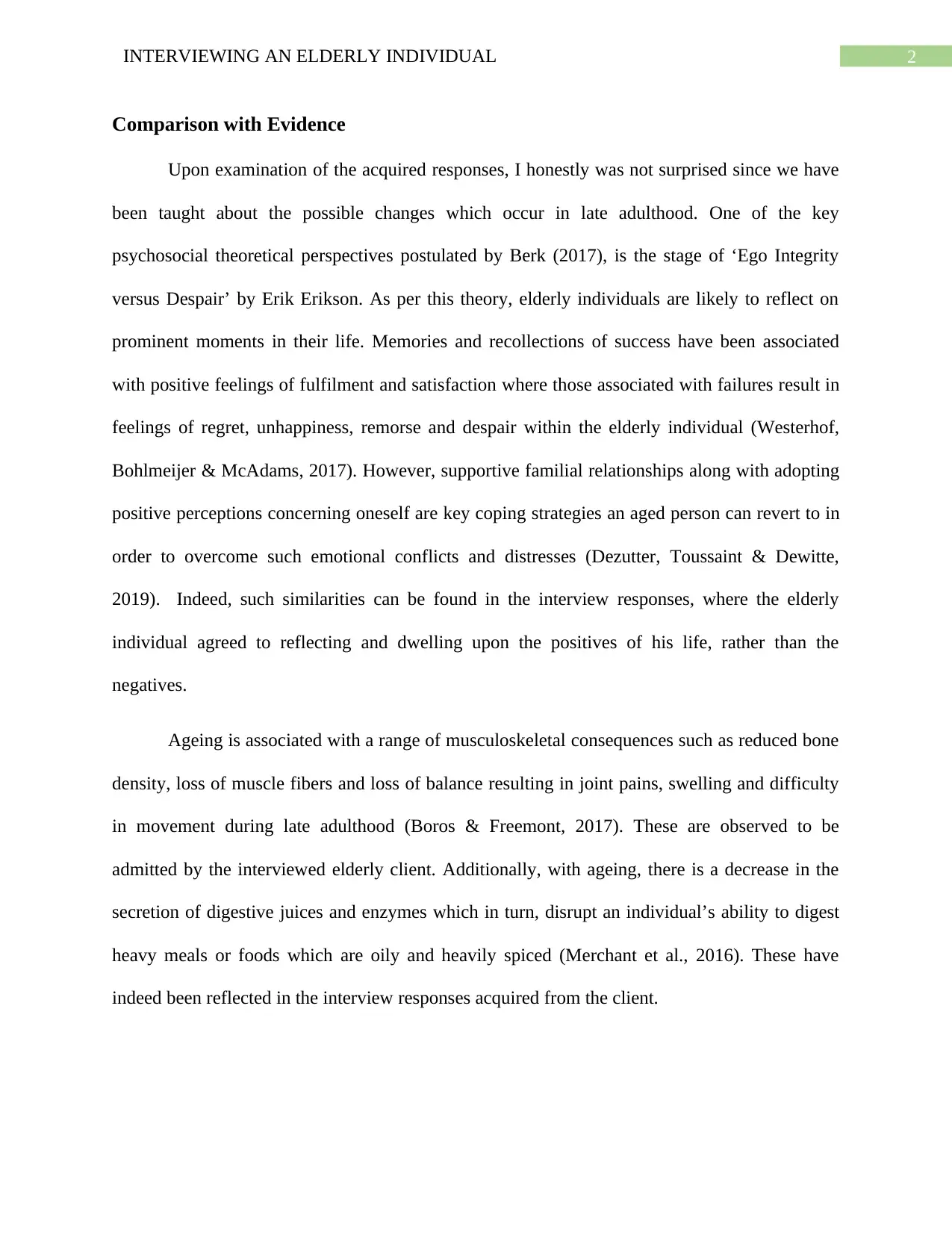

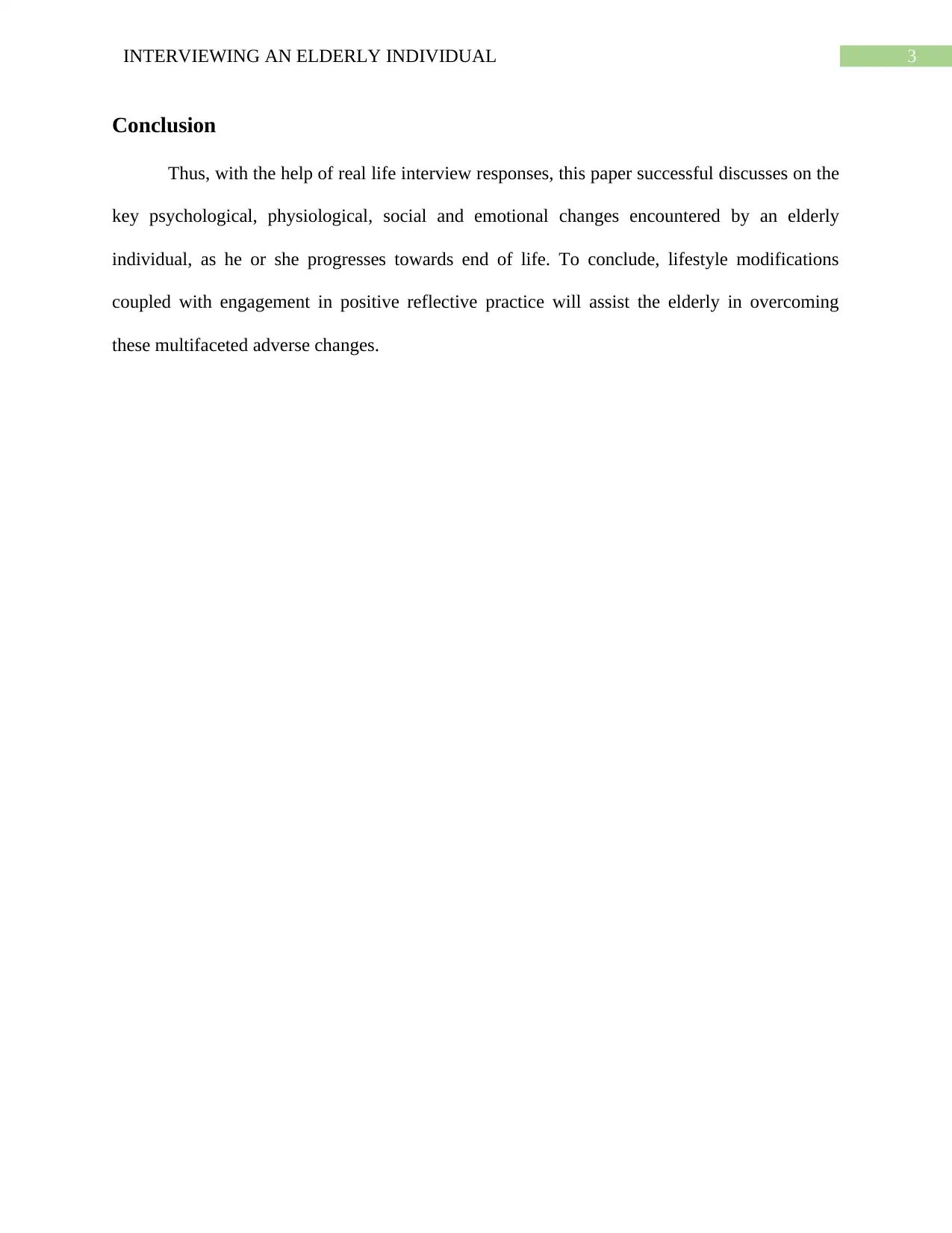
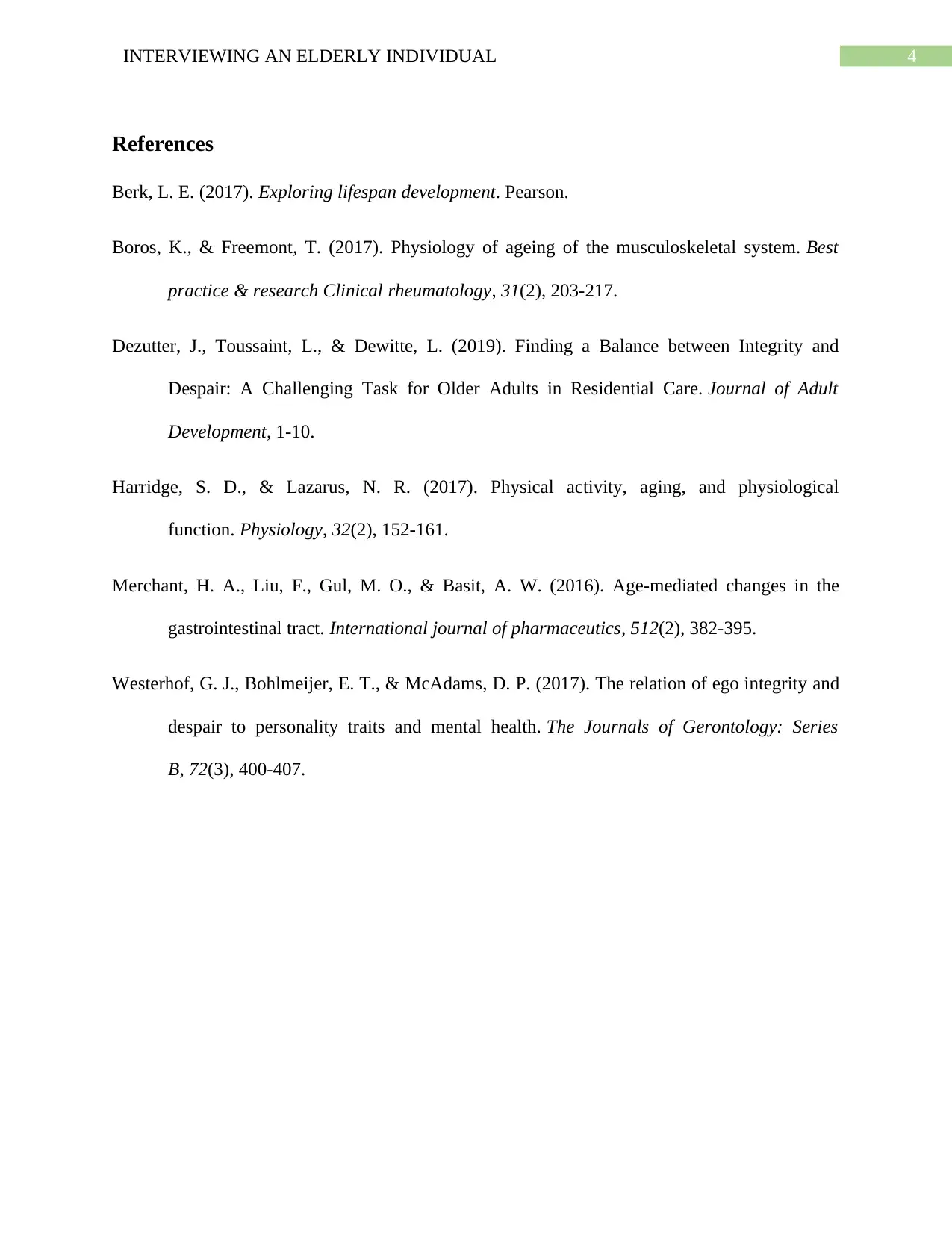





![[object Object]](/_next/static/media/star-bottom.7253800d.svg)